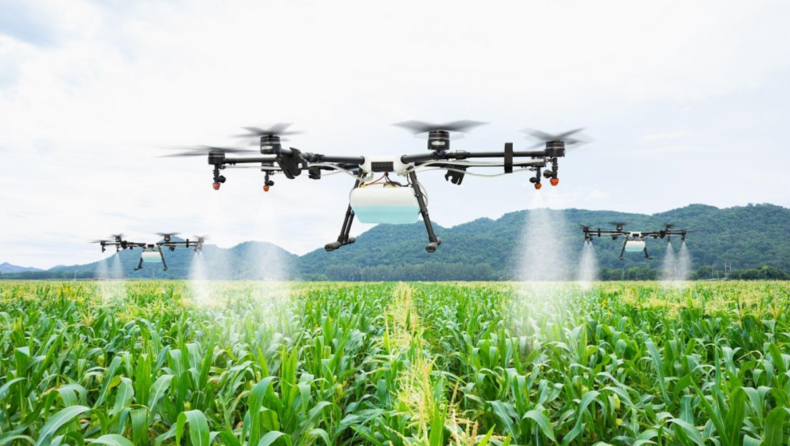To inform farmers about the use of drones for spraying pesticides, the Swiss agricultural giant Syngenta launched a 10,000-kilometre Drone Yatra on Friday morning. In the next three months, 13 Indian states will be covered under the project. The company also said during the occasion that it has partnered with IIT Ropar to develop the first biodiversity sensor technology in the world.
Under the drone yatra, a van will be deployed that will travel across the 13 states reaching approximately 10,000 farmers. The states covered under the ‘yatra’ will be Maharashtra, Karnataka, Uttar Pradesh, Madhya Pradesh, Haryana, Bihar, West Bengal, Odisha, Telangana, Andhra Pradesh, Rajasthan, Gujarat, and Punjab—said Susheel Kumar, Syngenta India Company Head and Managing Director.
With the launch of the project, Syngenta India also became the first private firm to get approval from CIB to spray pesticides using drones. The government of India, during the budget session, expressed the desire of using Drone-As-A-Service in diverse fields such as agriculture, health, delivery, etc. and the recent approval is being considered as part of the broader mission.
Also, Syngenta India is collaborating with the Fraunhofer Institute and IIT Ropar on ‘biodiversity sensor technology’. The technology will enable better tracking of the insect population that contributes to a healthy agriculture ecosystem, the aim of the first phase of the project is to detect and quantify insect life in and around farms.
In the future, we intend to expand this technique to recognize additional habitats. We have been using our initial prototype since March 2022. We will continue to polish and improve a few sensor prototypes during 2022 as well as advance artificial intelligence. And in 2024, we anticipate that selected countries will implement the first sensor-network trial projects, said Feroz Sheikh, Chief Information Officer, Syngenta Group.
Talking about future innovations the company tends to execute in India Mr. Kumar talked about the creation of a “grower app” which will provide a personalized crop calendar based on the farmer’s sowing date, planting method, planting material, and soil nutrition status, along with other weather-based advisory or alerts, nutrient recommendations, and an interactive community platform where farmers can share their experiences and ask questions from the experts.













